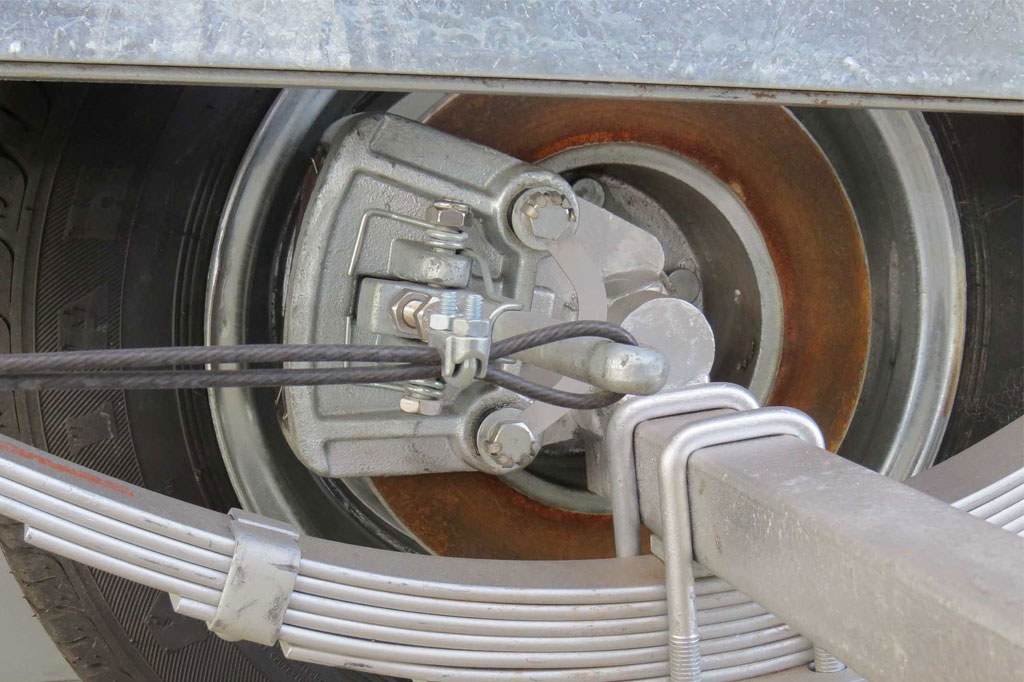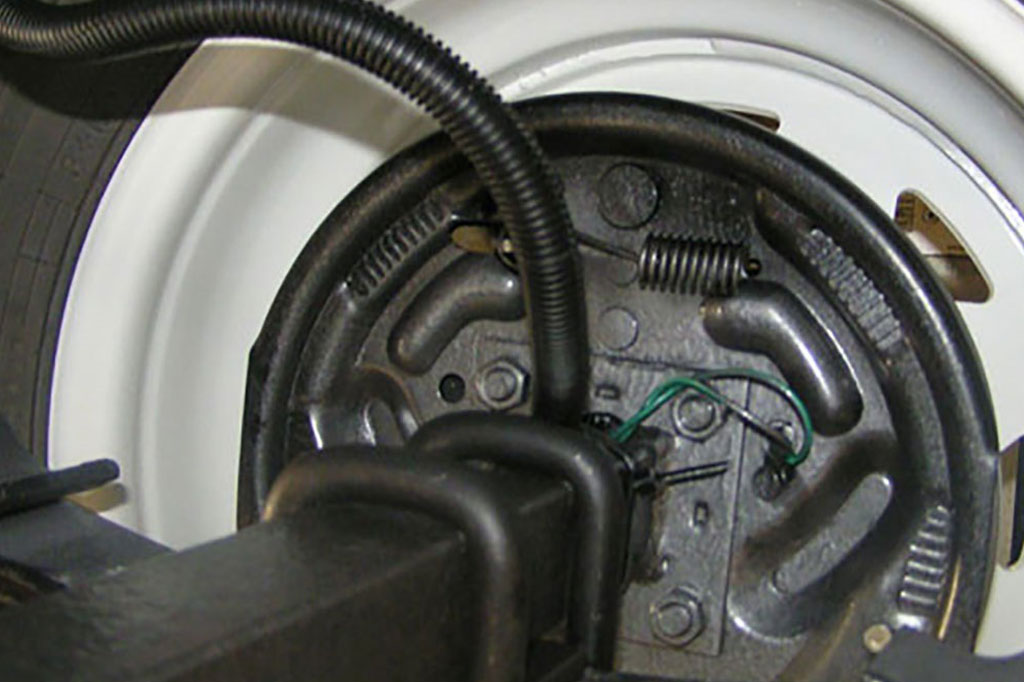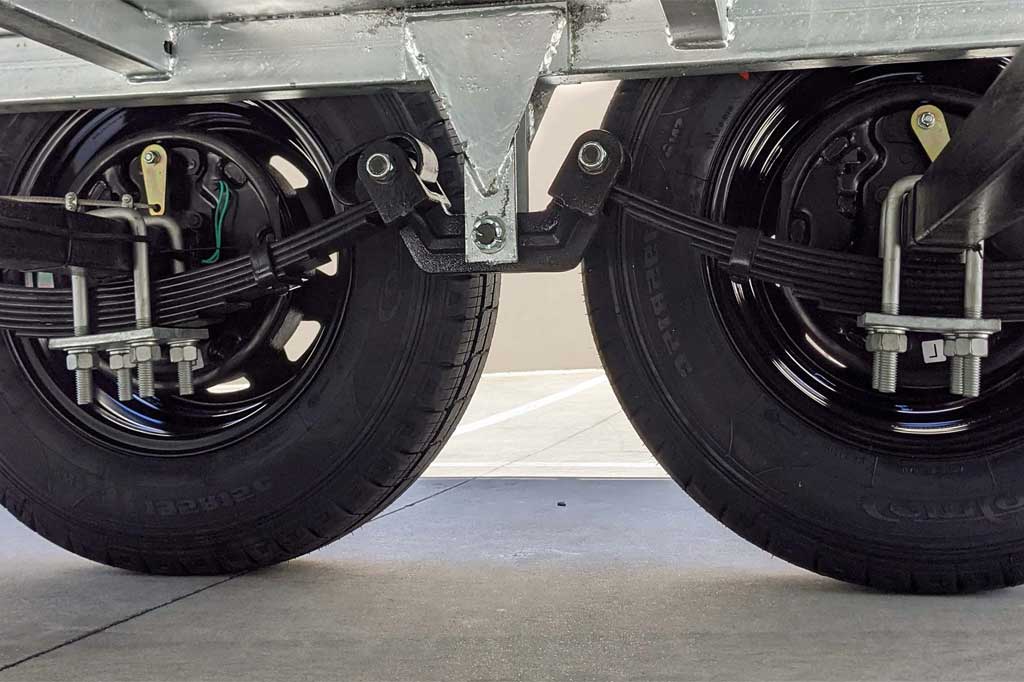When it comes to towing trailers, safety must come first. One of the most important components to ensure safe towing is the trailer braking system. In today’s market, most trailers come equipped with either mechanical or electric braking systems, each with its own set of advantages and disadvantages.
In this article, we’ll delve into the differences between mechanical and electric trailer brake systems to help you make an informed choice.
Comparison Chart
Feature | Mechanical Brake System | Electric Brake System |
Operation | Manual actuation through physical force | Activated electronically |
Control | Relies on cable or hydraulic system | Controlled by an electrical system |
Maintenance | May require regular adjustments | Generally require less maintenance |
Response Time | Slower response time | Faster response time, instant braking |
Efficiency | Generally less efficient | More efficient, better stopping power |
Cost | Typically cheaper upfront | Usually more expensive upfront |
Installation Complexity | Generally simpler installation | May require more technical expertise |
Heat Generation | Generates less heat | May generate more heat during braking |
Application | Commonly used in light-duty trailers | Often found in heavier ATM trailers, RVs |
Fore more detailed information, please keep reading.
Mechanical Trailer Brake System

Mechanical trailer brake systems have been around for decades and are commonly found in smaller trailers. These systems operate using a hydraulic mechanism that engages the trailer brakes when the tow vehicle slows down, causing the trailer to push against the hitch and compress a master cylinder, thus activating the brakes.
|
|
Here are some key characteristics of mechanical trailer brake systems:
- Simplicity: Mechanical brake systems are relatively simple in design, consisting of fewer components compared to electric brakes. This simplicity often translates to easier maintenance and fewer potential points of failure.
- Compatibility: Mechanical brake systems are compatible with a wide range of trailers, including those without onboard electrical systems. This makes them a popular choice for boat trailers and other utility trailers.
- Dependability: Since mechanical brake systems rely on hydraulic pressure generated by the movement of the trailer, they tend to offer consistent braking performance regardless of the condition of the tow vehicle’s electrical system.
However, mechanical trailer brake systems also have limitations. They may not provide as much control or adjustability as electric brakes, especially in situations where precise braking is required, such as downhill descents or emergency stops. Additionally, they can be less effective at distributing braking force evenly among trailer axles, leading to uneven wear on tires and brakes.
Electric Trailer Brake System

Electric trailer brake systems utilize electromagnets to activate the trailer brakes. These systems require an electric brake controller installed in the tow vehicle, which sends a signal to the trailer brakes to engage.
|
|
Here are some advantages of electric trailer brake systems:
- Control and Adjustability: Electric brakes offer greater control and adjustability compared to mechanical systems.
- Efficiency: Electric trailer brake systems can provide more precise braking, which can lead to shorter stopping distances and improved safety, especially when towing heavy loads or traveling downhill.
Despite their advantages, electric trailer brake systems have their own set of considerations. They are typically more complex than mechanical systems, which can make installation and maintenance more involved. Additionally, they rely on the electrical system of the tow vehicle, so a malfunction in the vehicle’s electrical components can affect the performance of the trailer brakes.
So, Which is Better?
Ultimately, the choice between mechanical and electric trailer brake systems depends on factors such as the type of trailer being towed, the towing environment, and personal preferences.
For smaller trailers or those without onboard electrical systems, mechanical brakes may suffice. However, for larger trailers with higer ATMs or situations requiring precise braking control, electric brakes are often the preferred option.
